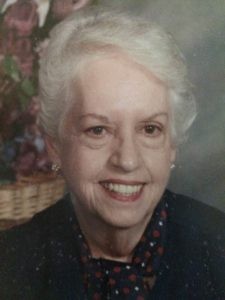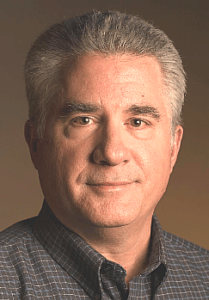She died 20 years ago this month, on Mother’s Day.
Shirley Ann Bridges, nee Solter. My mother. She died three months short of her 70th birthday, which was a pretty good span, considering she smoked Salem cigarettes one after another during most of her waking hours. Salems were the first filtered menthols, you know. “Take a puff, it’s springtime,” was their marketing slogan in 1956. Seriously.
I guess Salems were better than filterless Lucky Strikes (“LSMFT: Lucky Strike Means Fine Tobacco”), my father’s brand long into the filter era. Needless to say, my sister and I inhaled enough secondhand smoke as kids to choke several horses. But that’s the way it was in those days. Hey, we’re still here, like about 70 million other messed-up Baby Boomers.
The C word

Shirley Ann Bridges
The inevitable cancer finally caught up with Mom, however, in 2001. (Dad, too, three years later.) She had dodged a few scares and surgeries, but the big one arrived early in the year. We went out to lunch the afternoon before I flew to Asia on a 10-day trip. I noticed her stumble a bit as we returned to the car but assumed it was the lingering foot injury she had suffered a year or so earlier. My wife called me in Thailand a week later; she and the kids had gone to Mom’s apartment for a scheduled outing and found her acting strangely. She couldn’t seem to finish getting ready. She was incoherent. She couldn’t get across the room, much less down the stairs.
When I got back, I went straight to the hospital. Mom was cheerful, but she wasn’t all there. The big lung tumor her supposedly renowned oncologist had somehow missed had metastasized to her brain and taken up residence, never to leave in the few months she had left. In retrospect, I wish we had called hospice immediately, but we chose the hope-against-hope drill for a cancer of her type and advanced stage: chemotherapy, nursing facility, back to the hospital. The medical industrial complex is more than happy to accommodate hope-against-hope families, usually at the cost of more pain for the patient.
I camped out on her hospital room floor for the last three days of her life, pushing the morphine button when I heard her moan (she had ceased talking weeks before). Probably pushing it too often. Did I hasten her death? I’ll never know. On the last day, her eyes were open and set. The bright spring afternoon passed; the sun shone on her motionless face. As we sat by her bedside, Mom’s eyelids slowly closed. And she was gone.
“I camped out on her hospital room floor for the last three days of her life.”
Thank God she died before 9/11, which followed four months later. And the subsequent Age of Terror. And the Great Recession. And the pandemic. And the sheer horror of Trump — although she would have relished mocking him between puffs on her Salems. But she also missed seeing her grandkids grow up to be wonderful young adults. At least she got to enjoy their early years.
Smart, sophisticated, funny
Shirley Ann Bridges. She was beautiful, smart, sophisticated, funny, sarcastic. She was fun to be around. She had a Hollywood smile. She read all the books, saw all the movies, knew all the jokes and inside stories. Her throaty laugh was unmistakable (unless she was in the same room with her sister Mickey, who talked and laughed almost exactly the same way).
She gave me her love of reading, which led me to become a writer. She read everything — novels, biographies, politics, classics, gossipy tell-alls. Later in life, she checked out mysteries from the library by the grocery bagful. I teased her about that, insisting I would stick to more serious literature. She smirked and kept reading. Nowadays I read mysteries, usually by the bagful. I call them “crime fiction” — it sounds more serious.
She was a Navy kid. Not enlisted Navy, but Naval Academy Navy. Her stepfather was a ship captain who knew all the admirals. Her mother looked like Vivien Leigh. Classy. She was born in San Diego and lived all over, including Pearl Harbor before the Japanese bombed it. Grandpa was a strict taskmaster at home, but mostly he was away at sea, especially during the war. Mom was the dutiful daughter, the oldest of four who helped her mother hold the fort while he was gone.
The marriage
She probably could have married some star Annapolis midshipman. As smart as she was, she might even have pursued college and a career, still rare for women at the time.
But she fell for Dad, a would-be jazz musician and salesman. He was a charmer, a carouser, a devotee of all-night jam sessions, unfaithful from the get-go, moody, volatile. He had a mean streak, especially when he was drinking, which was often. They married in 1953 and divorced a miserable 15 or so years later, although he found ways to harass and irritate her for many years afterward. I’m sure they had some good times early on, but those times were mostly gone by the time I was old enough to notice.
“I’m sure they had some good times early on, but those times were mostly gone by the time I was old enough to notice.”
Thanks partly to him, Mom suffered from depression most of her adult life. When we were small, I remember her going to the hospital for shock treatments, which were pretty primitive in those days. The meds and therapies got much better over the years, but her depression never went away completely.
Don’t get me wrong; I loved Dad. But it took me 30 years and a lot of divine counseling to forgive him for the way he treated us, particularly Mom. He pretty much cured her of men. She never remarried or seriously dated (as far as I’m aware) after they divorced, despite her relative youth. She was bitter, I’m sure, but mostly she seemed relieved to be free of him. It gave her more time for reading.
Finest hour
But there was the matter of putting food on the table. Mom didn’t work outside the home; she didn’t even drive. The alimony checks were pathetic, and child support was even less — if and when Dad got around to paying it.
I know Mom was afraid during those anxious days. I heard her cry at night. But this period became her finest hour. We were old enough to be latchkey kids, so she dusted off her typing skills from pre-marriage gigs and found a job as a secretary-receptionist a few miles away. She took the bus or a taxi to get there, worked all day and came home to cook. On Saturdays, she wheeled her basket to the A&P store to buy groceries.
I didn’t tell her until years later, but she was my hero.
When my sister and I became teenagers, we went wild. She couldn’t control us, but she always loved us, always waited for us to come home. One of my earliest childhood memories is being sick with some minor ailment and Mom comforting me, saying, “I wish I could be sick for you.”
“I have yet to meet anyone who loved more unconditionally than Mom.”
That was my first human illustration of the unconditional love of Christ. I have yet to meet anyone who loved more unconditionally than Mom. No, not all moms are like that.
‘To my son, Erich …’
We never went to church as a family, and Mom didn’t seem much interested in religious faith. When I became a Christian in senior high school, she was happy for me but patiently dodged my many attempts to evangelize her. “Whatever makes you happy, son, you do it. I’m just fine,” she’d say. Mom had a private side you didn’t push against too hard.
She did, however, buy me a brown, imitation-leather New American Standard Bible in 1974, my first year as a follower of Christ. It’s worn and tattered now; duct tape holds the spine together. But it’s still my prized possession, still the Bible I read daily. Inside the front cover, written in fading ink in Mom’s perfect cursive, are these words: “To my son, Erich, ‘in whom I am well pleased.’” Try living up to that.
I worried she’d probably never come around to spiritual things. But when she moved to live near my young family many years later, she formed a deep friendship with my pastor’s mother, a wonderful believer who loved her and led her to sincere faith in Christ. We enjoyed several years of worshiping together before she died. She had a favorite TV preacher, too, and ordered his materials for her Bible/prayer times.
Wisdom in hindsight
Do we ever truly know our own parents as people? I mean, really know them as human beings? Or are they always “Mom” and “Dad”? I don’t know.
“Do we ever truly know our own parents as people? I mean, really know them as human beings?”
I do know that I loved Shirley Ann Bridges with all my heart as a mother and as a person, despite the many times I failed her. And I miss her every day. I started to write about her at the 10-year mark of her passing, but I couldn’t get past quoting two of my favorite Southern writers:
“Don’t forget to call your momma; I wish I could call mine,” counseled the late, great Lewis Grizzard, a fellow Georgian, when his mother was long gone. I never understood the ache behind those words until I couldn’t call Mom anymore.
Rick Bragg, Alabama scribe, wrote: “You wake up in your momma’s house and you smell the best bacon you’ve ever had. But more than anything you hear her footsteps. You hear her moving around. And you know that everything’s all right … as long as you can hear that sound.”
When you hear that sound no more, you are an orphan. It’s you and God, who is more than enough. But I’d love to hear Mom’s footsteps, and her voice, one more time.

Erich Bridges
Erich Bridges, a Baptist journalist for more than 40 years, retired in 2016 as global correspondent for the Southern Baptist Convention’s International Mission Board. He lives in Richmond, Va.
Related articles:
Let’s not forget about single mothers | Opinion by Maina Mwaura
Rethinking Mother’s Day | Opinion by Brett Younger


